| To the Lands of the Sagas – Greenland and Iceland Summer 2011
|
|||||||||||||||||||||||||||||||||||||||||||||||||||||||||||||||||||||||
| < Previous: Around Igaliku | < Begin Trip > | Next: Brattahlíð > | |||||
| < Another city in Greenland > | < Another Country > | ||||||

Custom Search
|
|
 |
Our second base after Igaliku was Qassiarsuk. |
 |
Qassiarsuk is a town of less than a hundred inhabitants, located just in front of Narsarsuaq across Tunulliarfik Fjord (also known as Eiriksfjord). |
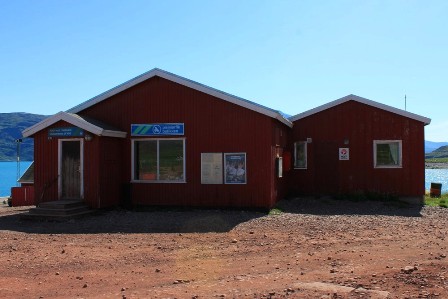 |
As we got out of the boat, the first building we saw was the Pisiniarfik shop. |
 |
Also, the service house was not as clean and functional as the one in Igaliku: only one shower was working, the washing machines were out of order, and there was no kitchen.... let's not count the smell of cigarette smoke inside. |
 |
There is a small red Lutheran church in town, dating from 1936. |
 |
The Qassiarsuk church is colourful: red outside, white and blue inside. |
 |
The church is located just beside a ruin...a ruin that is tought to be the site of the ancient Þjóðhildarkirkja Church, the first church ever built in the American continent, around the year 1000. |
 |
There are two hostels in Qassiarsuk. |
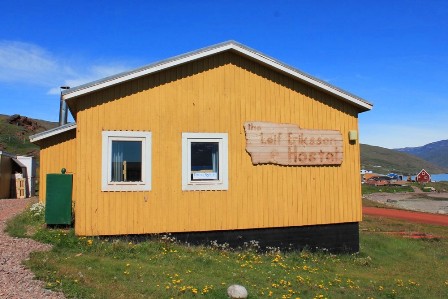 |
The rooms seemed OK and we had a good meal prepared by a Spanish cook, who was very nice and funny guy. |
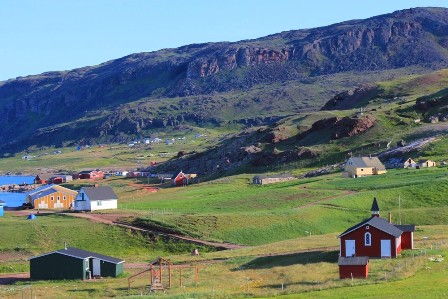 |
In other words, a real Greenlandic meal won’t have the same sauce, spices and preparation. |
|
|
|
 |
Qassiarsuk is not as pretty and quiet as Igaliku but it's a nice place to spend a few days. |
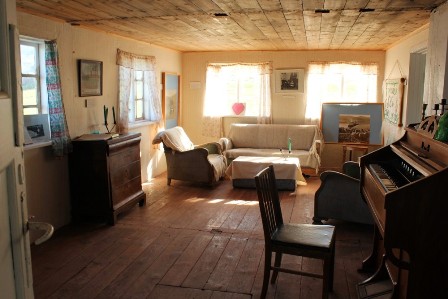 |
Second, there’s also more recent history. Modern Qassiarsuk was founded by sheep farmer Otto Frederiksen in 1924. |
 |
The Federiksen family also ran farms in the nearby settlement of Tasiusaq. |
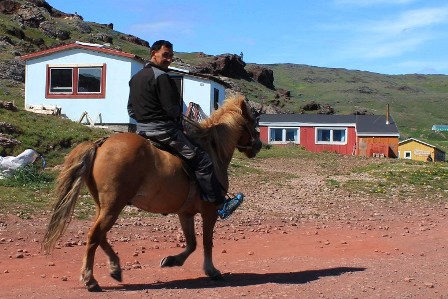 |
Greenland Links:Greenland on Trip Advisor |
 Custom Search
|
|
| < Previous: Around Igaliku | < Begin Trip > | Next: Brattahlíð > | |||||
| < Another city in Greenland > | < Another Country > | ||||||